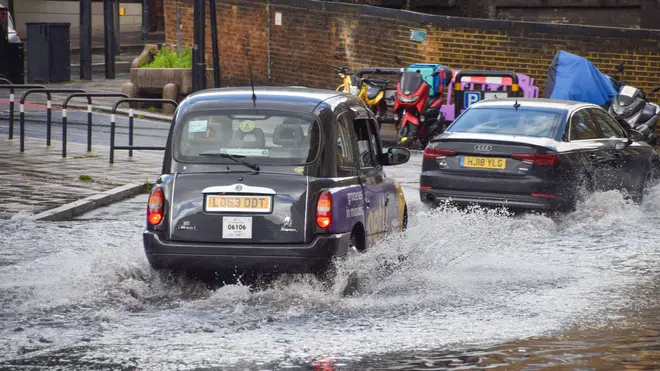
Henry Riley 4am - 7am
9 August 2021, 11:30

The UN has warned of the stark risks climate change poses in its landmark report published on Monday. Here are its main findings and what they could mean for the planet.
A global assessment of climate science by the Intergovernmental Panel on Climate Change (IPCC) highlighted the severity of the crisis.
The impacts have become increasingly evident around the world with extreme weather conditions, such as flash flooding and wildfires, becoming a regular occurrence.
In the UK alone, there have been extreme changes in weather in recent months, such as heatwaves and flash flooding.
Climate crisis: Human-caused damage could be irreversible for centuries - UN report
Read more: 'Code red for humanity': Landmark UN climate report 'sobering', PM says

'He messaged me: Dad, the weather is frightening me.'
Some of the key findings from the UN's report showed that:
Read more: World faces 'catastrophic' climate change as wildfires tear through Greece, minister warns

Portobello Road hit by flash flooding
As part of the Paris Agreement - the global treaty on climate change - there was a deal on limiting the rise in temperatures to 1.5C.
Countries pledged to keep global temperature rises to well below 2C above pre-industrial levels, aiming to limit it to 1.5C.
Read more: 'It's a crisis': Ex-Chief Scientific Adviser talks to LBC about climate change

Was the PM wrong about wind farms?
Scientists involved in the report have made it clear that the 1.5C or 2C limits in place are not the final cliff hanger for Earth.
However, every rise in temperature makes a difference, so sticking to limits would help avoid the crisis getting worse.
A 2018 IPCC report found that a 2C rise would lead to more heatwaves, extreme rainstorms, water shortages and droughts, among other disasters, compared to a 1.5C rise.
Professor Richard Betts, from the Met Office Hadley Centre and a contributing author to the report, said: "Like the speed limit on a motorway, staying below it is not perfectly safe and exceeding it does not immediately lead to calamity, but the risks do increase if the limit is passed.
"Limiting warming to 1.5C clearly needs much more urgent emissions cuts than is currently happening, but if the target is still breached we should not assume all is lost and give up - it will still be worth continuing action on emissions reductions to avoid even more warming."
Read more: British summers could regularly hit 40C due to climate change, Met Office warns

Parts of southern Turkey devastated by raging wildfires
The report was released ahead of the Cop26 climate summit in Glasgow.
In November, world leaders will gather to discuss the crisis in what could be the last chance of keeping global warming to 1.5C above pre-industrial levels.
There will be added pressure for different governments to take more action to tackle the problem in the run-up to the talk, finding ways to cut their nation's emissions in the next decade.
They cannot disagree with the findings as they have already approved the report.
Following its release, Inger Andersen, executive director of the United Nations Environment Programme, said at a conference: "You have been telling us for over three decades of the dangers of allowing the planet to warm.
"The world listened, but did not hear. The world listened, but it did not act strongly enough and, as a result, climate change is a problem that is here now.
"Nobody is safe and it's getting worse faster.
"We must treat climate change as an immediate threat, just as we must treat the connected crisis of nature and biodiversity loss and pollution and waste as immediate threats.
"It's time to get serious because every tonne of CO2 emission adds to global warming."